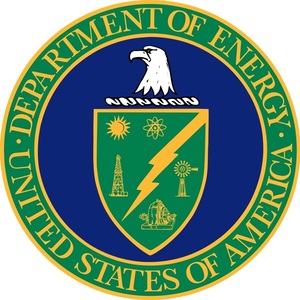DOE awards $1 million for bioenergy research

December 29, 2022
BY U.S. Department of Energy
Three projects have been selected for funding under a U.S. Department of Energy (DOE) Bioenergy Technologies Office (BETO) interagency agreement with the Minority Serving Institution STEM Research & Development Consortium (MSRDC).
DOE has leveraged the interagency agreement to reduce barriers to entry for Minority Serving Institutions (MSIs) and increase research partnerships.
MSRDC is a nonprofit member group of over 70 MSIs formed under a cooperative agreement by the U.S. Army in 2014. The consortium facilitates basic, applied, and advanced research awards from federal agencies through a limited competition contracting vehicle. Through its agreement with MSRDC, BETO has broadened its pool of participants and funded non-traditional, emerging, and historically underfunded investigators from MSIs at $1 million in Fiscal Year 2022.
Projects under this solicitation focus on three areas:
•Advanced Algal Systems: Developing strategies and technologies to produce high quality algae for cost-effective biofuels, intermediary products, and bioproducts.
•Advanced Terrestrial Waste Feedstock Technologies: Developing strategies and technologies to convert municipal solid waste and other potential waste resources into low-carbon biofuels and bioproducts.
•Accelerating Catalyst Development for Biofuel Production: Within the Chemical Catalysis for Bioenergy Consortium (ChemCatBio), this topic focuses on high-impact technology development for catalytic conversion technologies with emphasis on liquid transportation fuels, such as sustainable aviation fuel, diesel, and marine fuels, their co-products, or intermediaries.
The three projects selected for awards are:
|
INSTITUTION |
FEDERAL COST SHARE |
Advertisement
Advertisement
PROJECT DESCRIPTION
ZIP CODE
Topic Area: Advanced Algal Systems
North Carolina Agricultural and Technical State University
$280,861
This project will develop a biofiltration-microalgae symbiotic system with a novel microalgae-derived biochar-hydrogel-iron composite as a support medium for simultaneous anaerobic filtration and attached microalgae cultivation in agricultural wastewater. The proposed biofiltration attached microalgae symbiotic system and corresponding novel carbonaceous composite support medium can improve microalgal production in wastewater.
27411-0002
Topic Area: Advanced Terrestrial Waste Feedstock Technologies
Florida A&M University
$476,787
Advertisement
Advertisement
This team will produce hydrochar from food waste using microwave-mediated hydrothermal carbonization in order to increase thermal efficiency and reduce process costs. The hydochar can be used as a stable, consistent feedstock for biofuel production or biomass power. The team will collaborate with The National High Magnetic Field Laboratory at Florida State University.
32307-3105
Topic Area: Accelerating Catalyst Development for Biofuel Production
University of New Mexico
$250,000
This team will develop a novel catalytic approach for upgrading biomass derived ethanol to Sustainable Aviation Fuel. Utilizing cutting edge characterization techniques, the project aims to show how novel single atom catalysts can be leveraged to overcome catalyst deactivation challenges. This work will provide UNM researchers opportunities to collaborate with DOE National Laboratory partners working on similar challenges in ChemCatBio.
87131-0001
Read more on the MSRDC website.
Related Stories
Broco Energy on July 17 announced a new partnership with the Massachusetts Port Authority (Massport) to deliver and transition Massport's fuel tanks to renewable diesel across its various facilities.
Shell Aviation, Accenture, and Amex GBT on July 10 announced Avelia is in the process of evolving to an industry solution with independent data hosting and a multi-supplier model helping users access the GHG benefits of SAF.
The U.S EPA on July 17 released data showing more than 1.9 billion RINs were generated under the RFS during June, down 11% when compared to the same month of last year. Total RIN generation for the first half of 2025 reached 11.17 billion.
The U.S. EPA on July 17 published updated small refinery exemption (SRE) data, reporting that six new SRE petitions have been filed under the RFS during the past month. A total of 195 SRE petitions are now pending.
European biodiesel producer Greenergy on July 10 confirmed plans to shut down its biodiesel plant in Immingham, Lincolnshire, U.K. The company temporarily suspended operations at the facility earlier this year.
Upcoming Events










